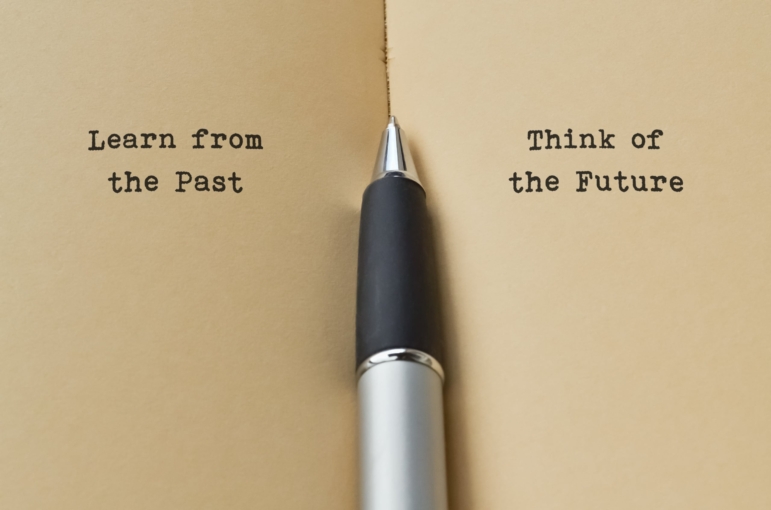Regret is a complex human emotion. However, regret’s power to help and to harm is often misunderstood, and it’s often not perceived at all. Even among those aware of regret’s power and may live under its daily shadow, its power to help a person achieve their dearest goals may be lost under its sullen weight.
What is regret? Some of its definitions are misleading and contribute to it being misunderstood and under appreciated. The Oxford English Dictionary gives as its first definition: the expression of grief, distress, or sorrow. And the top synonyms given for regret are anguish, grief, sorrow, and woe.
This is only half of the emotion we call regret. To demonstrate, consider these two pairs of imagined sentences:
- I grieve my mother’s death.
- I regret my mother’s death.
- I am anguished by my divorce.
- I regret my divorce.
The first sentence of each pair communicates sadness, the loss of someone or something that is or was of great value.
The second sentence of each pair communicates … what exactly? It communicates responsibility. The speaker communicates that they either acted or failed to act in some way that caused or contributed to the loss. This loss then leads to sorrow, grief, and sadness. But it also leads to something like guilt and remorse. Guilt only occurs when the person perceives that they had the knowledge, the capacity, and the opportunity to have acted differently, more ethically, or more beneficially.
If I say I regret my mother’s death, the first thought that is likely to come to the listener’s mind is “What do you mean? Are you responsible for her death?” And a response that would make sense given this expressed regret is, “Yes, she died of lung cancer. She was a heavy smoker. I could have, I should have, done more to get her to stop. I feel like her death is partly my fault.”
If I say I regret my divorce, it likely means that I instigated it or contributed to it through my behaviors. I am admitting to my responsibility for this outcome, to my fault.
With that as background, let’s consider how regret can hurt a person (through what I call Regret Capture) or help a person (through what is called Regret Avoidance).
First, though, there is one more aspect of regret I need to raise to make the discussion of regret’s ongoing ability to harm or help understandable. That is its temporal aspect. If we consider time – the past, present, and future – then what first jumps out is that regret is about the past. The regretful person regrets (guilt, remorse) over a past event. They continue to experience it in their present. The future doesn’t seem to be much involved other than that we may assume the person will continue to experience regret into the future unless they find some way to put it ‘behind’ them.
But regret’s power to harm and to help involves the future much more directly than the above description suggests. And, perhaps surprisingly, regret may not even involve the past at all. It may also not involve any event that actually happened, but instead an imagined one. Ok, let’s delve in!
Regret Capture
Regret Capture is my term for the phenomenon of a person experiencing regret and missing out on future opportunities because of a past lost opportunity, one that occurred (fully or partially) because of their actions or inactions.
Here is a small personal example. It’s one that probably everyone reading can relate to. When Steve Jobs died in 2011, Apple stock fell dramatically. At the time I had the clear and distinct thought that this was an opportune time (not for Steve and his family, but for me) to buy Apple stock. I did not do so. Why? Because of business, inertia, procrastination, etc. Its stock price has increased by about 18 times since that time.
But that’s the past. My present feelings of regret about my failure to act may be more or less strong (or non-existent). But irrespective of my feelings about this past event, more important is how those feelings continue to control my behavior.
For example, let’s accept that presently, my research into the economy and Apple’s current performance strongly suggests that Apple stock will go up. If I had the money to invest and Apple seemed like a better opportunity than other companies, I should certainly choose to buy Apple stock. However, because of my continued regret over my missed opportunity 13 years ago, I do not buy Apple stock now. In effect, purchasing Apple stock now, at 18 times a higher price than what I could (and should) have bought it for 13 years ago, would consummate my initial failure to act in 2011. It would turn my regret from an abstraction into an actual dollar amount lost, a missed opportunity that likely is in the hundreds of thousands of dollars. This actualization of my bone-headedness is too painful to this day. So I avoid buying Apple stock now. But there is more.
My Regret Capture related to my failure to purchase Apple stock back in the day does not encompass a single episode of regret, one that arose only today as I contemplate buying Apple stock. Instead, my Regret Capture has continued uninterrupted. Since my initial regret episode in 2011, I have avoided buying Apple stock since then and am likely to continue avoiding buying it for the rest of my life. My Regret Capture continues to get worse over time. Why?
As the price of Apple stock has continued to rise over all these years, my continued non-purchase of it – itself due to the ongoing regret over my initial failure – continues to compound my regret because I continue to miss out on Apple’s long and continued rise in value. I not only continue to be captured by regret, but I am also more and more captured by it because I continue to not take the wise investment action of buying that stock because of the initial regret. Regret leads to behaviors that deepen regret.
Enough of the gloom. Let’s look at the bright side of regret.
Regret Avoidance
Regret Avoidance is the avoidance of maladaptive behaviors that are likely to lead to regret. Avoiding future regret is a positive outcome based on the experience of regret that arose in past situations. The desire to avoid repeating behaviors that result in regret can lead a person to vow to never again engage in those same types of actions. For example, following my initial regret at not buying Apple stock in 2011, I could now vow to always act (following proper due diligence and appropriate constraints) on positive stock research results.
Or consider my regret over my mother’s death from lung cancer. I vow to myself that I will now always intervene in a loving way to help my family members and friends achieve health and wellness (without becoming a pain in the a**). Or following my regrettable divorce, I vow to communicate better with and more deeply cherish my significant other. This is learning and growth that arises from the desire to not again act in ways that lead to regret. (Just to stress: these are not real examples. My mom was not a smoker, and I remain happily married.)
Future Regret Avoidance
Now I want to introduce the concept of Future Regret Avoidance. Most commonly, we feel present regret over past events that influence future outcomes. All the examples I’ve given are of this type. Below I explore another type of regret avoidance, one in which regret is not experienced but instead imagined before it has a chance to occur.
Future Regret Avoidance refers to imagined feelings of regret over a possible but not-yet-taken action from the vantage point of a future time. This is likely confusing, so here’s another personal example.
Back in 2002, I was on an airplane flying back home from a three-day gig with a company that provided psychiatry oral board training to exam candidates. I was one of their faculty members. On the two-hour flight home, I felt frustrated with the company that ran these courses because the course I participated in was poorly run. It seemed to make their doctor-clients more anxious and unsure of themselves rather than more confident and competent. On that flight, I kept enumerating in my mind all these problems while believing I could do a better job.
At one point in the flight, I had a clear, loud thought that rang out in my mind, “Jack, put up or shut up!” At that moment – I was 40 then – I sat remembering how I started a house painting business during college that allowed me to make a lot of money, especially over the summer months when I was out of school.
Sitting in that plane that day I thought back to my (what I perceived as) bold move to start a business when in college. And here I was, sitting on the airplane at the age of 40, toying with thoughts of starting another business, this time a medical education business. Next, I imagined an older version of myself, one 20 years into the future. I imagined how my 60-year-old self would look back to its younger 40-year-old self that either started or did not start this new medical education company.
What did I imagine from the perspective of my future 60-year-old self? I thought that my future self would feel intense regret if my current 40-year-old self did not start that business at a time when I still had a chance. I also considered what my 60-year-old self would think of me if I started this business and failed. I imagined my 60-year-old self would say, “It’s better to have tried and failed than never to have tried at all.”
So, the reason I started American Physician Institute over 20 years ago, was not for fame or fortune. Also, it was not because I disliked my job as a junior faculty member at my Alma Mater, the University of Illinois. I made the decision, one that led to a lot of joys and sorrows over these years, because of regret avoidance. But I did not behave in a way that led to regret. Instead, I just imagined future regret. And that was enough. I did not want to grow into an old man who would – to his dying day – regret not giving it a go when he still could.
Carpe Diem!
Dr. Jack
Language Brief
“Regret for the things we did can be tempered by time; it is regret for the things we did not do that is inconsolable.” — Sidney J. Harris
“Of all the words of mice and men, the saddest are, ‘It might have been.'” — Kurt Vonnegut
“You can’t go back and change the beginning, but you can start where you are and change the ending.” — C.S. Lewis
“Regret is the worst human emotion. If you took another road, you might have fallen off a cliff. I’m content.” — William Shatner







Leave A Comment